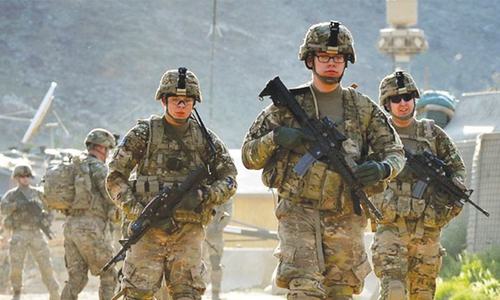THE HAGUE: The International Criminal Court said on Friday it was seeking clarity over who was in charge in Afghanistan, before deciding whether to grant a prosecution request to relaunch a probe into serious crimes committed there.
The Hague-based tribunal’s new prosecutor last week sought to reopen an investigation into Afghanistan, saying he would focus on the Taliban and militant Islamic State-Khorasan group.
Last year the ICC, set up in 2002 to probe the world’s worst crimes, put on hold an inquiry after the now-deposed government in Kabul said it would try to investigate the war crimes allegations itself.
“The Chamber considers that, for it to be in a position to make an informed decision... it needs to receive reliable and updated information as to the identification of the authorities currently representing Afghanistan,” the ICC’s pre-trial judges said.
“The Pre-Trial Chamber decided to request the Secretary-General of the United Nations and the Bureau of the Assembly of States Parties of the Court to submit information on the identification of the authorities currently representing... Afghanistan,” the judges said.
The ICC is an independent court of last resort and only steps in where national governments are unwilling or unable to prosecute the gravest crimes.
Chief prosecutor Karim Khan has argued that because of the takeover of Afghanistan by the Taliban in August “its implications (including for law enforcement and judicial activity...) represents a fundamental change in the circumstances, necessitating the present application.” While “the Afghanistan authorities might have been willing and able to investigate and prosecute alleged crimes prior to the events of August 2021, they are now no longer able to do so,” Khan said.
He said in August said he was worried about reports coming from Afghanistan that may amount to violations of “international humanitarian law” as thousands fled the country, fearing Taliban persecution.
Judges, however, said that neither Khan’s office, nor the court itself could make assumptions about the changes in a member state’s political system — and referred the question of who represented Afghanistan to the UNSG and the court’s governing body.
The international community too is facing a growing dilemma over whether to recognise the Taliban as the rulers of Afghanistan.
The debate burst into the open at the UN General Assembly last month where the Taliban had asked to speak on behalf of Afghanistan, but the ambassador of the ousted government still claimed to represent his country.
Migration from Afghanistan
Europe must take the security threats that might arise from migration out of Afghanistan more seriously, EU Home Affairs Commissioner Ylva Johansson warned on Friday.
“On the terrorist threat from Afghanistan, I must say that my assessment is that the alert level is not high enough. We really need to do more,” she told reporters after a meeting with her EU counterparts in Luxembourg.
The Taliban’s takeover of Afghanistan in August brought fears in Europe of a replay of 2015, when nearly 1 million asylum-seekers, mostly Syrians, Iraqis and Afghans, fled to Europe by crossing from Turkey to Greece.
Published in Dawn, October 9th, 2021
















































